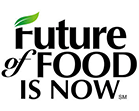
How will we feed the planet’s growing population in a sustainable way as it rises to almost 10 billion in the middle of this century?
Smart protein, also called alternative protein, is a pioneering new food category that is a viable alternative to animal-derived meat, eggs, and dairy. It has vastly better implications for food security, public health, and planetary health. The problems with animal production are two-fold: it contributes to the emission of greenhouse gasses and the demand for feed sometimes destroys unique ecosystems.
Plant-based alternatives to animal-based foods are seen as the future of food, and there will be even more varieties in the future. The plant-based meat market is poised for exponential growth, from $7.9 billion in 2022 to $15.7 billion by 2027 with North America emerging as the fastest-growing region. (mordorintelligence.com/)
Pioneering companies like Impossible Foods (Impossible Burger in 2016) and Beyond Meat (Beyond Chicken Strips in 2012; Beyond Burger in 2016) have educated the public about plant-based and alternative protein food choices. Foodtank has written about the Singapore-based food tech startup Karana Foods working to support biodiversity and benefit farmers, consumers, and chefs, through a meat alternative made from jackfruit. Foodtank has also highlighted Greenleaf Foods, which produces the plant-based protein brand Lightlife. It is now the largest U.S. manufacturer of tempeh, or soy protein that is all Certified Organic and non-GMO.
65% of Americans have consumed plant-based meat alternatives in the past year, with 2 in 5 eating them daily or weekly, according to surveys from the International Food Information Council in 2021 (foodinsight.org). The global market for plant-based proteins is expanding due to rising demand for vegan protein products. The alternative-protein industry is at a crossroads. Could hybrid products, such as combinations of lab-grown and conventional foods, be the future of protein? And how about insects, fungi, seaweed or cell culture? We will be keeping an eye on what comes next from alternative-protein companies as they try to provide good substitutes for animal meat.
Foopd styling and photo by Sarah Phillips @FutureofFoodisNow






